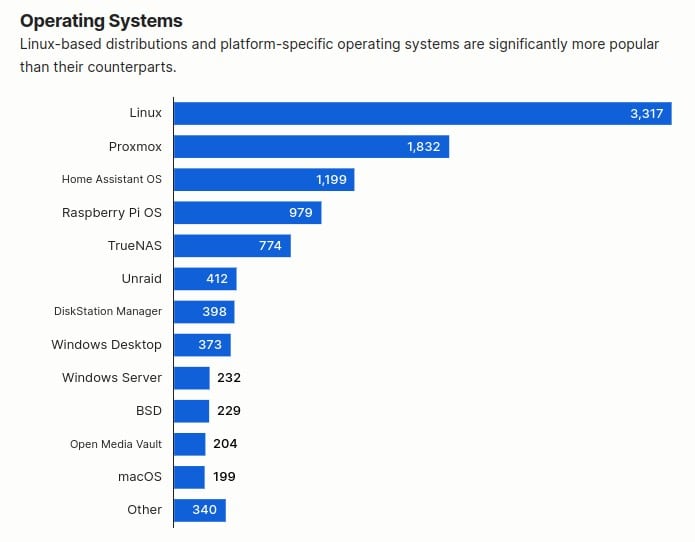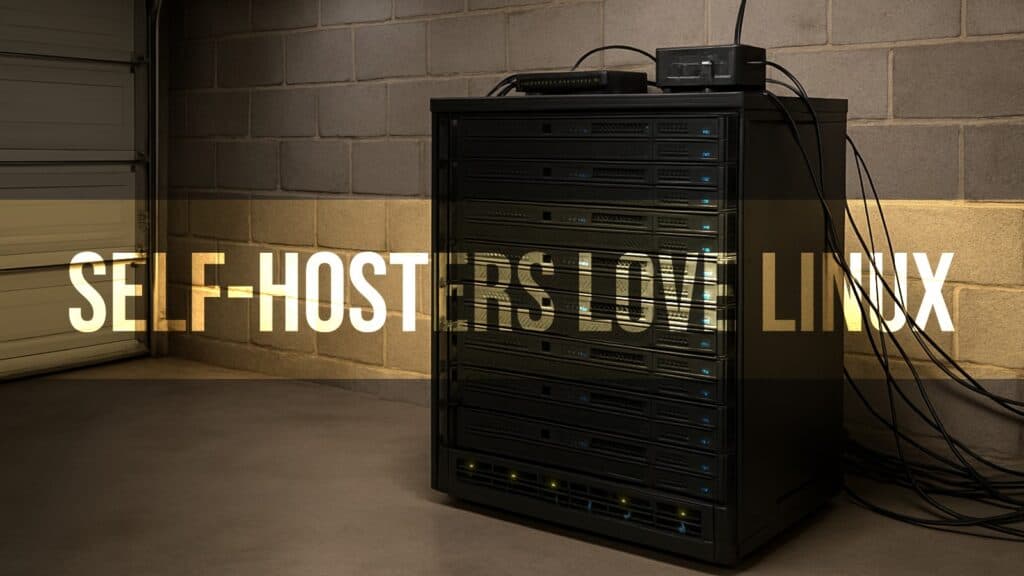Ethan Sholly, the driving force behind selfh.st, one of the most recognized communities uniting self-hosting enthusiasts, has published the latest results of his annual survey on the community’s preferences, collecting 4,081 responses from self-hosting practitioners worldwide.
No surprise there: Linux is overwhelmingly dominant, chosen by more than four out of five self-hosters (81%). In other words, for self-hosters operating at bare-metal, virtualised, or container-based infrastructure, Linux remains the backbone.
In fact, this result aligns closely with broader trends: according to Wikipedia, Linux holds a 63% share of global server infrastructure. Aside from the hobby aspect, most respondents said privacy was their main reason for self-hosting, which, as you know, remains one of Linux’s strongest selling points. Now, back to the numbers.
Nearly half of the survey’s participants (45%) use Proxmox. While not a general-purpose OS, it’s a Debian-based virtualization platform. In the third place, almost one-third (29%) run Home Assistant OS (another Linux-based OS), a specialized distro for smart home automation. The fourth place goes to Raspberry Pi OS (24%), which is again Linux-based.

Windows Server accounts for just under 6%, showing limited use in home labs, while FreeBSD and derivative systems, which have a small but notable presence, closely trail at just over 5%.
On the containerization front, Docker remains the dominant platform by a wide margin. Nearly nine out of ten respondents rely on it, making it the default choice in self-hosting and homelab environments.
However, my surprise is for the second place, held by LXD container & virtual machine manager, with almost one-third (30%) of survey participants. While Podman, Docker’s direct alternative and container engine that supports rootless operation, is in third place with 11%.

Beyond operating systems and container platforms, the 2025 selfh.st User Survey includes a broad range of additional very interesting data points, such as hardware choices, virtualization and orchestration tools, popular self-hosted services (media servers, smart-home systems, backups), networking and storage practices, and many more.
So, even if you’re not into self-hosting, I highly recommend giving it a look. The survey offers a clear picture of what home users actually use for their server needs. Here’s the link: 2025 Self-Host User Survey Results.
